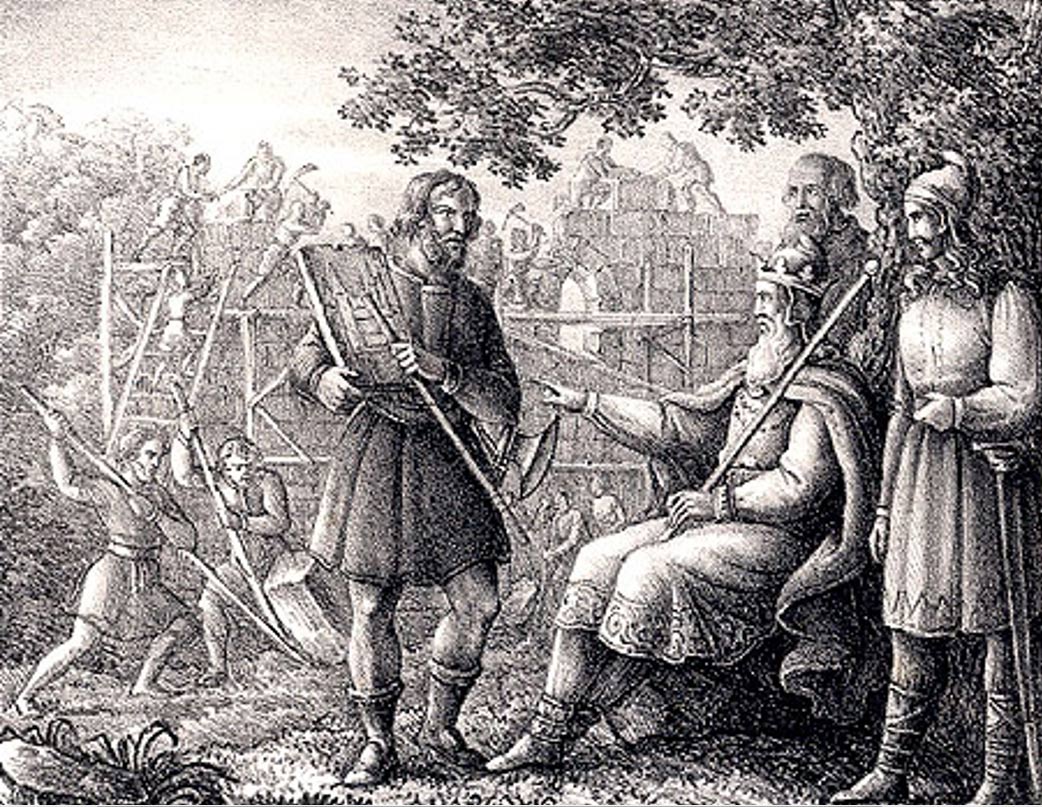Being Worthy
Worth is, in the Heathen worldview, both incredibly simple and somewhat confusing. It is, first and foremost, defined by an individual’s accomplishments that further their tribe. But it can also be modified, heightened or harmed, by the luck of those people who are close to the Heathen in question, or to whom they have oathed. It goes hand in hand with honor, and in being so bound it is just as difficult to understand for newer Heathens, and even for some longtime Heathens.
When we look at worth, the first thing we must understand is that, like honor, it is in relation to one’s tribe. Unlike reputation, which is how one is perceived by those in the outer-yard, worth is determined by the inner-yard. It is gained by doing things that the tribe deems honorable and by improving the luck of the tribe. It is not merely a matter of good intention: one must be accomplished in their endeavors to properly be considered “of worth” to the tribe.
When we look at arch-Heathen interactions regarding worth, one thing we discover is that it not only needed to be earned, but that it was held in relation to one’s tribe. For instance, in Víga-Glúm’s saga, Glúmr Eyjólfsson meets his grandfather Vigfuss for the first time, and is not accorded any special consideration despite being blood kin. This is in large part because Vigfuss was a chieftain, and would not afford his grandson respect until he proved himself worthy. Glúmr did so later, at which point his grandfather tells him “Now you have given proof that you are of our kin; I was but waiting until you should lead yourself into your kin by a show of manhood.” The phrase “lead yourself into your kin” is described by Gronbech as meaning that one has shown himself a worthy descendant of worthy ancestors.
Glúmr came from a worthy line, and his grandfather did not accord any but the lowest place in his hall until he proved himself worthy of that lineage himself. One who is descended from great ancestors is also expected to be great. Looking at families who have had great success and wealth in their lives, one can see this in modern life as well. Children who stray from the path of worthiness are thought of as “black sheep,” and in many cases pitied. Each tribe will determine how they address this lack of worthiness, of course, as they are the ones who deem a person worthy to begin with.
We improve our worth not only through our deeds, but through the deeds of those we ally with or oath to. Much like luck, worth can be gained through strong association with those who have it. A man who swears service to a chieftain who has great worth and luck gains some measure of those as well. Their inner-yard sees this service as benefiting the tribe through their improved luck and their standing and reputation with others. Of course, when swearing an oath to a person of great luck and worthiness, one must remember that they are also expected to live up to that. The act of oathing is not enough alone, as it merely shows willingness. Ability to keep the oath, and to keep a chieftain’s luck intact, is another matter entirely.
Worth also had some very tangible concerns in many arch-Heathen tribes and societies, much of which revolved around law and recompense for injury or death. It’s a bygone means of determining how much weregild might be, or how an insult might be mended through material goods. It has little bearing on us today, as modern Heathens, but remnants of it can still be seen in modern courts, most frequently in wrongful death cases.
Today we gain worth through our ability to care for our families, to provide for them, to cook and clean. We gain worth in helping our children or siblings with schoolwork, or by making our home a safer place. By helping our kinsmen when they need it, and by keeping our oaths to the tribe. We do so not because we expect recognition for it from our tribe, nor do we necessarily gain reputation in doing so. We do it because the luck of the tribe is improved with our efforts, and because leading a worthy life shows that we are “leading ourselves into our kin.”
